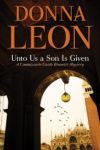 I need a break. Not from school or work or even the large orange cat determined to share my lap with the laptop. (Please move, Peach). No, I need a break from the willful ignorance and hypocrisy floating this way from Tallahassee, where the Florida Legislature is being lobbied by a conservative group that wants to ban certain books from public school readers. Again. Y’know, the books they find objectionable, ones by Toni Morrison, Frank McCourt, Anthony Burgess, Kate Chopin, among others. Yes, that’s the stench of censorship wafting across the Sunshine State. Where oh where are the orange blossoms of yesteryear? Like I said, I need a break, so I’m not going into my standard rant. Instead, I’m going to read some lovely books of my own choosing. I suggest you do the same, right after you read this story from the Tampa Bay Times, “Bills may foster bans on books.” http://tinyurl.com/yypzeapk
I need a break. Not from school or work or even the large orange cat determined to share my lap with the laptop. (Please move, Peach). No, I need a break from the willful ignorance and hypocrisy floating this way from Tallahassee, where the Florida Legislature is being lobbied by a conservative group that wants to ban certain books from public school readers. Again. Y’know, the books they find objectionable, ones by Toni Morrison, Frank McCourt, Anthony Burgess, Kate Chopin, among others. Yes, that’s the stench of censorship wafting across the Sunshine State. Where oh where are the orange blossoms of yesteryear? Like I said, I need a break, so I’m not going into my standard rant. Instead, I’m going to read some lovely books of my own choosing. I suggest you do the same, right after you read this story from the Tampa Bay Times, “Bills may foster bans on books.” http://tinyurl.com/yypzeapk
 There’s nothing like a good Gothic to make me forget my woes. An island castle, a missing bride, a hidden passage, a rare butterfly. It’s the latter that lures intrepid lepidopterist Veronica Speedwell to Cornwall in Deanna Raybourn’s witty A Dangerous Collaboration (Penguin Berkley, digital galley). She’s posing as the fiance of Tiberious, Viscount Templeton-Vane, who just happens to be the brother of Veronica’s fellow adventurer, Stoker. Her feelings for the dashing Stoker are as deliciously complicated as the secrets awaiting the three of them on St. Maddern’s Isle, where the beautiful Rosamund disappeared on her wedding day three years ago. Maybe a seance will reveal her whereabouts.
There’s nothing like a good Gothic to make me forget my woes. An island castle, a missing bride, a hidden passage, a rare butterfly. It’s the latter that lures intrepid lepidopterist Veronica Speedwell to Cornwall in Deanna Raybourn’s witty A Dangerous Collaboration (Penguin Berkley, digital galley). She’s posing as the fiance of Tiberious, Viscount Templeton-Vane, who just happens to be the brother of Veronica’s fellow adventurer, Stoker. Her feelings for the dashing Stoker are as deliciously complicated as the secrets awaiting the three of them on St. Maddern’s Isle, where the beautiful Rosamund disappeared on her wedding day three years ago. Maybe a seance will reveal her whereabouts.
 In The Stranger Diaries (Houghton Mifflin, digital galley), Elly Griffiths takes a break from her Ruth Galloway series to craft a modern Gothic that includes a classic ghost story. English teacher Clare Cassidy’s work on a biography of Victorian writer R.M. Holland is interrupted by the violent deaths of several of her colleagues in ways suggested by Holland’s most famous story, “The Stranger.” If that’s not weird enough, Clare finds someone has been leaving her messages in her diary. Add her teenage daughter’s new circle of friends, and you’ve got a chilly puzzle enhanced by excerpts from Holland’s horror tale.
In The Stranger Diaries (Houghton Mifflin, digital galley), Elly Griffiths takes a break from her Ruth Galloway series to craft a modern Gothic that includes a classic ghost story. English teacher Clare Cassidy’s work on a biography of Victorian writer R.M. Holland is interrupted by the violent deaths of several of her colleagues in ways suggested by Holland’s most famous story, “The Stranger.” If that’s not weird enough, Clare finds someone has been leaving her messages in her diary. Add her teenage daughter’s new circle of friends, and you’ve got a chilly puzzle enhanced by excerpts from Holland’s horror tale.
 Although Venetians love to gossip, Commissario Guido Brunetti usually pays no attention to the constant chatter. But in Donna Leon’s absorbing Unto Us a Son Is Given (Grove Atlantic. digital galley), Brunetti’s wealthy father-in-law asks him to investigate when he hears that his elderly art dealer friend Gonzalo plans to adopt a younger man as his sole heir. Gonzalo has said it’s his business and to stay out of it, but then the old man dies suddenly and a visiting friend organizing a memorial service is murdered in a Venetian hotel room. As usual, the procedural atmospherics complement Brunetti’s reflections on human nature, doubt and justice.
Although Venetians love to gossip, Commissario Guido Brunetti usually pays no attention to the constant chatter. But in Donna Leon’s absorbing Unto Us a Son Is Given (Grove Atlantic. digital galley), Brunetti’s wealthy father-in-law asks him to investigate when he hears that his elderly art dealer friend Gonzalo plans to adopt a younger man as his sole heir. Gonzalo has said it’s his business and to stay out of it, but then the old man dies suddenly and a visiting friend organizing a memorial service is murdered in a Venetian hotel room. As usual, the procedural atmospherics complement Brunetti’s reflections on human nature, doubt and justice.
 Although the title of Alice Quinn’s rousing historical novel The Huntress (Morrow, digital galley) refers to a ruthless Nazi war criminal, it also applies to the fascinating Nina Markova, who survived her encounter with the Huntress in war-torn Poland and is now bent on revenge. After the war, she is joined in her search by British war correspondent Ian and his sidekick, former American soldier Tony, who are tracking Nazis wanted for war crimes. Eventually, their stories will intersect with aspiring photographer Jordan McBride, who lives in Boston with her Austrian stepmother. The story moves back and forth between time periods and continents, but it’s Nina who kept me flipping pages. Her fierceness owes much to her childhood in the wilds of Siberia, which she uses to her advantage to learn to fly and then talk her way into the infamous regiment of female Russian bomber pilots known as “the Night Witches.” Her flying exploits, and those of her comrades, are terrifying and adrenaline-fueled, and they scar her forever. As in her last best-seller The Alice Network, Quinn has done her research, and facts bolster her fiction.
Although the title of Alice Quinn’s rousing historical novel The Huntress (Morrow, digital galley) refers to a ruthless Nazi war criminal, it also applies to the fascinating Nina Markova, who survived her encounter with the Huntress in war-torn Poland and is now bent on revenge. After the war, she is joined in her search by British war correspondent Ian and his sidekick, former American soldier Tony, who are tracking Nazis wanted for war crimes. Eventually, their stories will intersect with aspiring photographer Jordan McBride, who lives in Boston with her Austrian stepmother. The story moves back and forth between time periods and continents, but it’s Nina who kept me flipping pages. Her fierceness owes much to her childhood in the wilds of Siberia, which she uses to her advantage to learn to fly and then talk her way into the infamous regiment of female Russian bomber pilots known as “the Night Witches.” Her flying exploits, and those of her comrades, are terrifying and adrenaline-fueled, and they scar her forever. As in her last best-seller The Alice Network, Quinn has done her research, and facts bolster her fiction.
 Flashback to February when I read several engrossing family dramas. In Tara Conklin’s The Last Romantics (Morrow, digital galley), the four Skinner siblings are all marked by the three-year interval they refer to as “the Pause.” It occurs when they are children and their father suddenly dies and their mother abdicates her role as parent because of mental illness. At just 11, Renee assumes most of the burden of caring for Caroline, Joe and Fiona, who narrates the story from advanced old age. Still, demons follow them into adulthood, where they face another
Flashback to February when I read several engrossing family dramas. In Tara Conklin’s The Last Romantics (Morrow, digital galley), the four Skinner siblings are all marked by the three-year interval they refer to as “the Pause.” It occurs when they are children and their father suddenly dies and their mother abdicates her role as parent because of mental illness. At just 11, Renee assumes most of the burden of caring for Caroline, Joe and Fiona, who narrates the story from advanced old age. Still, demons follow them into adulthood, where they face another  tragedy that illuminates family ties. Anissa Gray’s affecting first novel, The Care and Feeding of Ravenously Hungry Girls (Penguin/Berkley, digital galley), is told through the alternating voices of the three Butler sisters. When pillars of the community Althea and her husband Proctor go on trial for scamming a local charity, middle sister Viola returns from Chicago to help younger sister Lillian care for Althea’s troubled twin teenagers, Kim and Baby Vi. But these strong sisters, whose backstories artfully unfold, also need to learn to care for themselves.
tragedy that illuminates family ties. Anissa Gray’s affecting first novel, The Care and Feeding of Ravenously Hungry Girls (Penguin/Berkley, digital galley), is told through the alternating voices of the three Butler sisters. When pillars of the community Althea and her husband Proctor go on trial for scamming a local charity, middle sister Viola returns from Chicago to help younger sister Lillian care for Althea’s troubled twin teenagers, Kim and Baby Vi. But these strong sisters, whose backstories artfully unfold, also need to learn to care for themselves.  Right after I read Nickolas Butler’s Little Faith (HarperCollins, digital galley), I read a newspaper story about parents arrested for withholding medical treatment from their sick child because of religious reasons. In Butler’s book, which gracefully chronicles one year in the life of a rural Wisconsin family, grandparents Lyle and Peg become concerned when their adopted daughter Shiloh becomes involved with a charismatic evangelist who convinces her that her five-year-old son Isaac is a budding faith healer. There’s further conflict when Isaac is diagnosed with diabetes, and Shiloh chooses prayer over medicine. The ensuing drama plays out thoughtfully, unlike a TV medical show that wraps up everything in an hour episode.
Right after I read Nickolas Butler’s Little Faith (HarperCollins, digital galley), I read a newspaper story about parents arrested for withholding medical treatment from their sick child because of religious reasons. In Butler’s book, which gracefully chronicles one year in the life of a rural Wisconsin family, grandparents Lyle and Peg become concerned when their adopted daughter Shiloh becomes involved with a charismatic evangelist who convinces her that her five-year-old son Isaac is a budding faith healer. There’s further conflict when Isaac is diagnosed with diabetes, and Shiloh chooses prayer over medicine. The ensuing drama plays out thoughtfully, unlike a TV medical show that wraps up everything in an hour episode.






